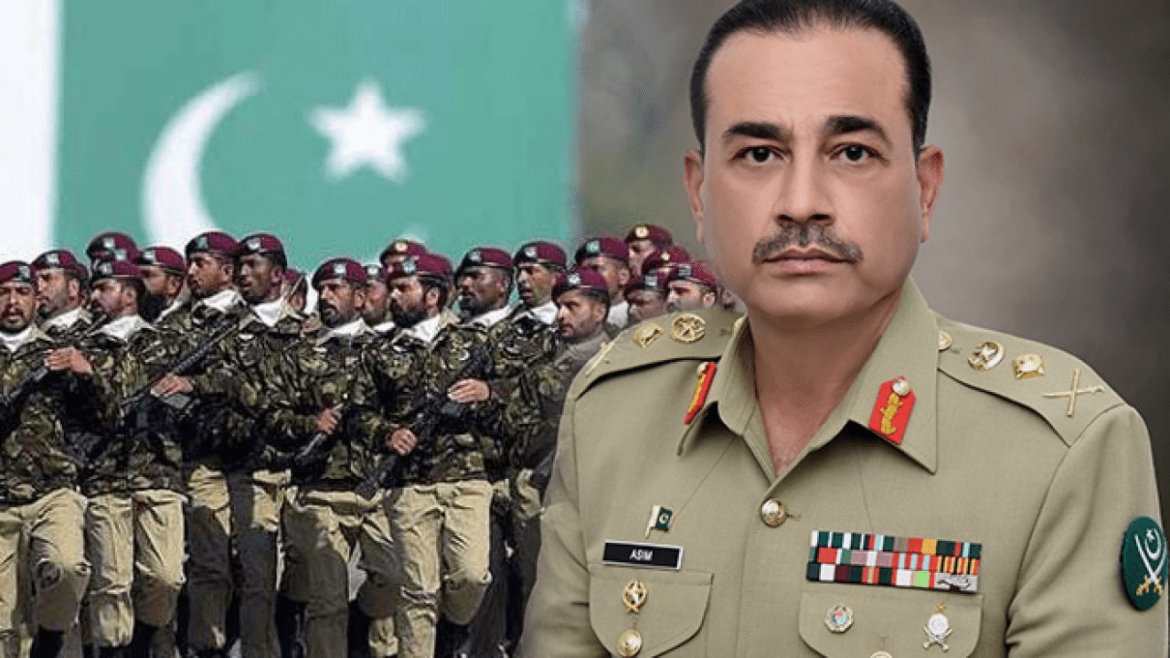AI Generated Summary
- It is important for the global community to perceive Pakistan’s current power dynamics not as a quest for civilian supremacy but rather as a complicated game of chess, where powerful individuals and institutions strategically use democratic principles, the rule of law, and the Constitution to achieve their objectives.
- Tracing back to Gen Munir’s term as the Director General of the ISI, he had informed then-PM Imran about the alleged corrupt practices of his wife — a move that resulted in his own transfer.
- The 18th Amendment to the Pakistan Constitution sought to rectify the structural disparities bred by repeated military coups, offering a modicum of federal autonomy to provinces and removing the President’s power to dismiss elected governments.
Every corner of Karachi, Pakistan’s financial powerhouse, resonates with the slogan, “HAMARI Fauj Hamara Fakr” (our army, our pride). This defiant pride emblazons banners throughout the city, a part of the Pakistani army’s — colloquially referred to as the ‘establishment’ — efforts to repair its tarnished image after the tumultuous events of May 9th.
The arrest of thousands of political activists following a spate of violence and unrest speaks volumes about the establishment’s fight-back strategy. Yet, amid the apparent chaos and anarchy in nuclear-armed Pakistan, it is crucial to move beyond simplistic understandings and selfish interests to truly comprehend the underlying power dynamics.
The epicenter of this turmoil is a bitter power struggle, a clash of egos, between the current army chief, Gen Asim Munir, and ex-Prime Minister Imran Khan. Tracing back to Gen Munir’s term as the Director General of the ISI, he had informed then-PM Imran about the alleged corrupt practices of his wife — a move that resulted in his own transfer.
Accompanying this saga is the alleged politicization of the judiciary. The 18th Amendment to the Pakistan Constitution sought to rectify the structural disparities bred by repeated military coups, offering a modicum of federal autonomy to provinces and removing the President’s power to dismiss elected governments. However, the subsequent 19th Amendment diluted parliamentary oversight of judicial conduct and appointments.
Bilawal Bhutto Zardari, Pakistan’s Foreign Minister, recently hinted at the compromised nature of this legislation in a parliamentary session. This alleged compromise was ostensibly made to prevent then Chief Justice Iftikhar Chaudhry from declaring the 18th Amendment unconstitutional. The politicization of the judiciary is further evidenced by the public castigation of Chief Justice Umar Ata Bandial by PML-N leader Mariam Nawaz, following his decision to grant bail to Imran.
The influence of the army extends far beyond the bounds of conventional military matters. Like in many parts of the Global South, Pakistan’s army has cultivated a crafty approach to maintain its predominance and suppress internal critics. It has initiated a punitive campaign against “arsonists who attacked the civil and military installations,” invoking stringent laws including the Pakistan Army Act and Official Secrets Act.
These punitive actions appear to have had a considerable impact, reflected by the resignation of senior leaders from the Pakistan Tehreek-e-Insaf (PTI) and the toning down of Imran’s accusations against army leadership.
Even after the turbulence of May 9, the core of Pakistan’s internal politics remains largely unchanged. External influences, too, have maintained their pre-existing impact on the nation’s political sphere. After a no-confidence motion ousted him from parliament, Imran accused the Biden administration of orchestrating a ‘regime change’, citing his refusal to grant the US access to Pakistani airbases for counter-terrorism operations. Now, there is a clear shift in stance with efforts underway to foster improved ties with the US administration.
Pakistani politicians have traditionally leveraged India-centric rhetoric and discourse on Kashmir to bolster their popularity. While Imran’s allies have used these strategies, the current alliance partners — the PPP and PML-N — are seasoned political players. They understand that forging peace with India necessitates more than just political will; it requires strategic maneuvering on multiple fronts.
It is important for the global community to perceive Pakistan’s current power dynamics not as a quest for civilian supremacy but rather as a complicated game of chess, where powerful individuals and institutions strategically use democratic principles, the rule of law, and the Constitution to achieve their objectives. The central figure orchestrating this chessboard is undoubtedly the Army Chief, Gen Asim Munir.




